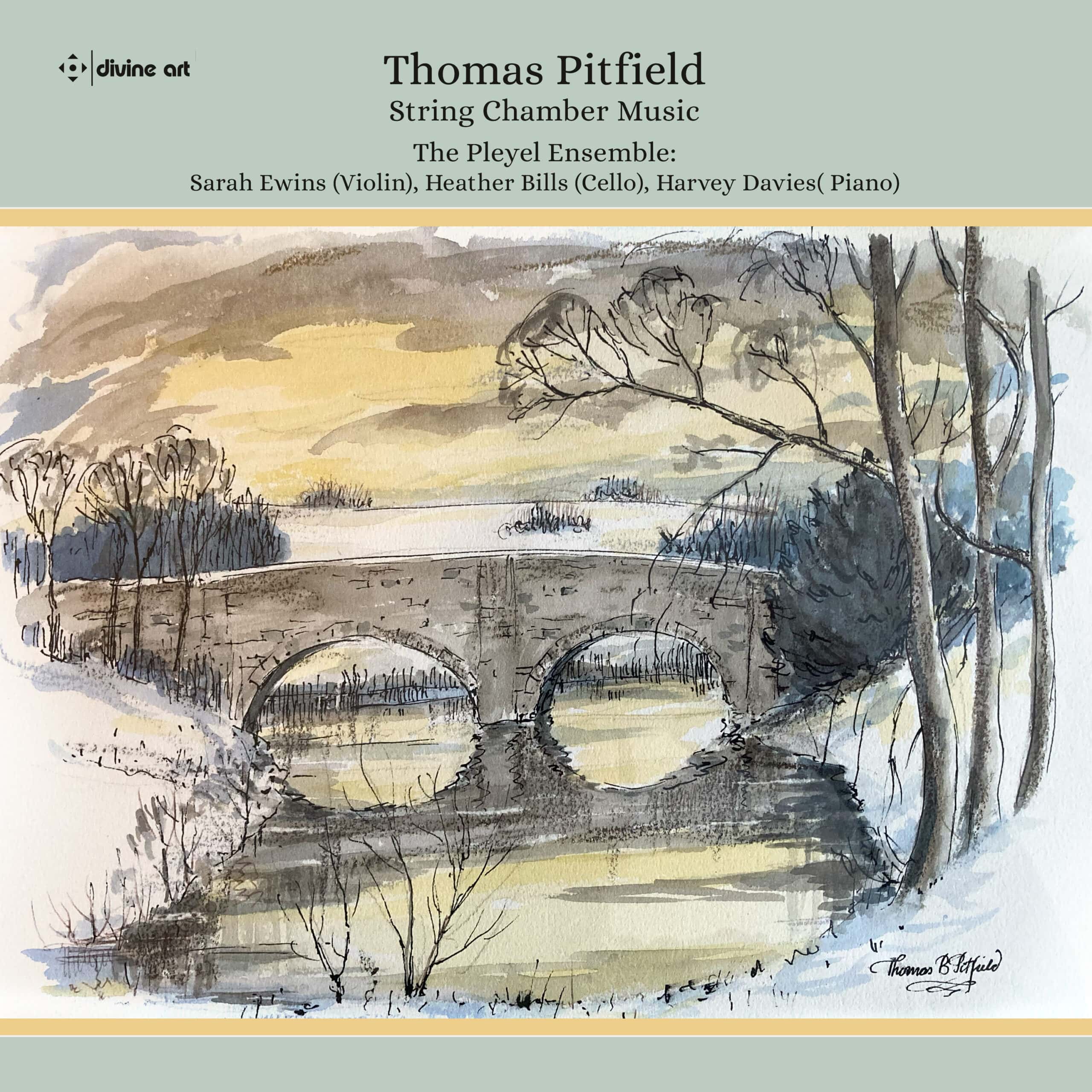Fanfare
Thomas Pitfield (1903–1999) was an astonishing polymath. Among his other talents he was a poet, artist, composer, engraver, mechanical engineer, furniture maker, and teacher. Given such a wide array of interests, one might expect his music to be that of a dilletante, which is absolutely not the case. Born in Bolton in greater Manchester, Pitfield was a gifted composer, influenced by the music of Vaughan Williams and Delius alongside the French Impressionists. Every piece on this program would be at home in a serious chamber music concert.
Pitfield possessed a pronounced gift for melody as well as for harmonic and contrapuntal development. His idiom is tonal and quite conservative for its time. The result is music that is immediately appealing but that also rewards repeated listening. These works are tightly constructed and concise—the Second Piano Trio is the longest at 17:39.
The two piano trios are largely lyrical. The first was composed in 1930 and dedicated to Alice Asbury, who was to become Pitfield’s wife in 1945; they remained married until his death 65 years later. The trio is urgent, even impassioned, in its lyrical outpouring. The influence of Debussy is felt in the first movement. Piano Trio No. 2 was composed in 1948–49 and is less expansive, with more jagged rhythms, although the finale returns to the composer’s predominantly lyrical style. The very brief Epigraph for piano trio is based on a theme by Anton Arensky. The Cello Sonata from 1938 is closer to the Second Piano Trio than the First, displaying sharp rhythmic interjections and forceful contrasts, particularly in the dramatic first movement. The second movement, a lovely arietta marked Andantino dolce, could serve as a gentle lullaby. A light Scherzino and a brilliantly virtuosic Toccatina conclude the work. The Sonatina for Cello and Piano was published in 1944 (we don’t know when it was written), but it doesn’t reflect the horrors that England experienced during the war. The music is lighthearted and seems slightly jazz-influenced.
The Pleyel Ensemble is a Manchester-based group that changes personnel based on the instrumental needs of the music they are playing. They have a particular commitment to British music. The three members heard on this disc, Sarah Ewins (violin), Heather Bills (cello), and Harvey Davies (piano), do themselves proud. They play with energy, tonal beauty, and affection.
I can enthusiastically recommend this disc to listeners looking for unusual repertoire that still finds new things to say in an old-fashioned manner. If you enjoy Vaughan Williams and Walton, it is difficult to imagine Pitfield’s chamber music not appealing to you. The recorded sound is well balanced, but I wish the program notes were more informative about the individual pieces.
@divineartrecordingsgroup
A First Inversion Company
Registered Office:
176-178 Pontefract Road, Cudworth, Barnsley S72 8BE
+44 1226 596703
Fort Worth, TX 76110
+1.682.233.4978












